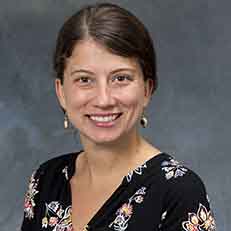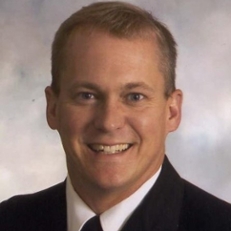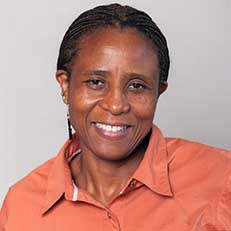The Paul H. O’Neill School of Public and Environmental Affairs is pleased to welcome an accomplished group of new faculty members for the 2025–26 academic year. The diverse experiences and groundbreaking research of the newest members of the O’Neill School family strengthens our long-standing commitment to preparing the next generation of leaders while also advancing solutions to today’s most pressing challenges.
“The O’Neill School is known for researchers and educators who set the standard in their areas of expertise around the globe,” said Siân Mooney, dean of the O’Neill School. “We’re excited to welcome the new members of our faculty who will have an immeasurable impact in the classroom, on our community, and through their scholarship.”
Meet the new faculty members

Chris Callahan, Assistant Professor
Callahan is an interdisciplinary Earth system scientist interested in the economic and social impacts of climate change. He uses a wide range of tools, from simple and complex climate models to econometric regression techniques, to understand the relationship between extreme climate events and outcomes such as economic growth and human health. Callahan earned his Ph.D. from Dartmouth and comes to the O’Neill School after serving as a postdoc at Stanford.

Julia Dessauer, Assistant Professor
Dessauer’s research broadly focuses on power, labor, and inequality in culture industries. Her dissertation, “Power in Hollywood: Work, Agency, and Authorship in the Era of #MeToo,” was awarded a 2024 NSF/ASA Doctoral Dissertation Research Improvement Grant. She holds a Ph.D. in sociology from the University of Virginia.

Peter Euclide, Research Professor
Euclide is a molecular ecologist and fisheries biologist whose research combines modern genomic techniques and ecology to answer questions related to animal movement, local adaptation, and population structure. His current research focuses on understanding the evolution of population substructure in the absence of physical barriers and the genomic mechanism of adaptation to environmental change.

Sarah Hatcher, Visiting Lecturer
Hatcher comes to the O’Neill School after spending five years at the IU Museum of Archeology and Anthropology where she served as a learning and community engagement manager as well as the head of programs and education. She earned her master’s in arts management from the University of Oregon and is pursuing a Ph.D. in curriculum and instruction from Indiana University.

Tess Leuthner, Assistant Professor
Leuthner’s field of research is environmental toxicology with a focus on the consequences of chemical pollution on human and environmental health. She studies the impact of chemical exposures on growth, development, and molecular scale of C. elegans, a microscopic nematode. She earned her Ph.D. from Duke University.

Sarah Powers, Clinical Assistant Professor
Powers earned her B.S. in environmental management from the O’Neill School in 2008 and her M.S. in Environmental Science in 2011. She received the O’Neill Adjunct Teaching Award in 2023 and has previously served as a research associate at O’Neill.

David A. Reingold, Executive Vice President and Chancellor, IU Bloomington
Reingold serves as Chancellor of Indiana University Bloomington, leading the university’s flagship campus with a commitment to student success, academic excellence, research innovation, and civic engagement. Reingold was previously a faculty member at the O’Neill School from 1997 to 2015, and he served in multiple capacities in the school's administration.

John Shassberger, Visiting Lecturer
Shassberger currently serves as a Chief of Naval Installations Command (CNIC) Installation Programs Integrator (IPI) leading the Naval Support Activity Crane as the senior civilian responsible for all installation operations, programs, and personnel. Shassberger earned his doctorate from Oakland City University in 2012 in leadership, his master’s in financial management from the Naval Postgraduate School in Monterey, Calif., and his bachelor’s degree in political science from the U.S. Naval Academy in Annapolis, Maryland.

Nilesh Shinde, Assistant Professor
Shinde is an environmental and natural resource economist who studies how land and water policies affect sustainability and human well-being. His focuses on three main areas: how forest governance and land rights support conservation and development, how water policies manage groundwater and pollution, and how environmental factors like air pollution and sunshine impact health and productivity. He earned his Ph.D. in natural resource economics and environmental informatics from Virginia Tech.

Brandon Sorge, Associate Professor
Sorge teaches in the O’Neill School’s newest degree program, Community and Organizational Leadership Studies. His research centers on policies and initiatives aimed at cultivating a civically engaged, STEM-literate workforce, with a particular emphasis on promoting diversity within STEM fields. He earned his Ph.D. in Technology from Purdue University. Prior to his career in academia, Sorge worked as a high school mathematics teacher and served as a K–12 district administrator.

Anna Strauss, Assistant Professor
Strauss specializes in social policy and public finance, including social spending through the tax code. Her research focuses on the effects of work-family policies on time use, consumption, and well-being. She received her Ph.D. in public administration from Syracuse University and previously worked as a policy analyst at the Organization for Economic Cooperation and Development.

David Swindell, Professor and Director of the IU Public Policy Institute
Swindell earned his Ph.D. in Public Policy from the O’Neill School and spent the past 12 years as the director for Arizona State University’s Center for Urban Innovation. His research focuses primarily on community and economic development, especially public financing for sports facilities, and how sports facilities contribute economically to urban areas.

Noah Turner, Assistant Professor
Turner is joining O’Neill’s Criminal Justice faculty, where his work will apply criminological theory in understanding extremist crime and violence. The focus of his research is to examine policy implications and actionable recommendations that address pressing issues in criminal justice and homeland security. Turner earned his Ph.D. from the School of Criminal Justice at Michigan State University, and has supported projects focused on managing the reintegration of formerly incarcerated extremists and evaluating counterterrorism programming in the United States.

Phoebe Wakhungu, Visiting Lecturer
Wakhungu earned her Ph.D. from IU in 2010 and her MPA from the O’Neill School in 2004. Her areas of interest include education policy analysis, quantitative and qualitative research methods in education research, and survey methodology and the effects of postsecondary financing and institutional contexts on students' academic attainment.

Maranna Yoder, Assistant Professor
Yoder earned her Ph.D. in economics from the University of Maryland, and her research centers on the interaction of environmental quality with health, education, and labor market outcomes. She also studies how air pollution from school buses impact students’ academic achievement and the effect of prenatal exposure to wildfire smoke on health at birth.
New faculty joining O’Neill in January
Conrad Pritchard, Assistant Professor
Pritchard comes to the O’Neill School following three years at the Colorado School of Mines. He studies the water quality and treatment of urban stormwater runoff, and his interests extend to water quantity—or lack thereof—particularly in the American southwest. He earned his Ph.D. from Stanford in 2022.
Engy Ziedan, Assistant Professor
Ziedan’s interests lie at the intersection of healthcare innovation, economic policy, and data-driven research, with a focus on aging populations and the effects of policy and technology on medical spending and health. She has a Ph.D. in economics from the University of Chicago and is co-founder and Chief Scientific Officer at Protégé, an artificial intelligence training data platform.


